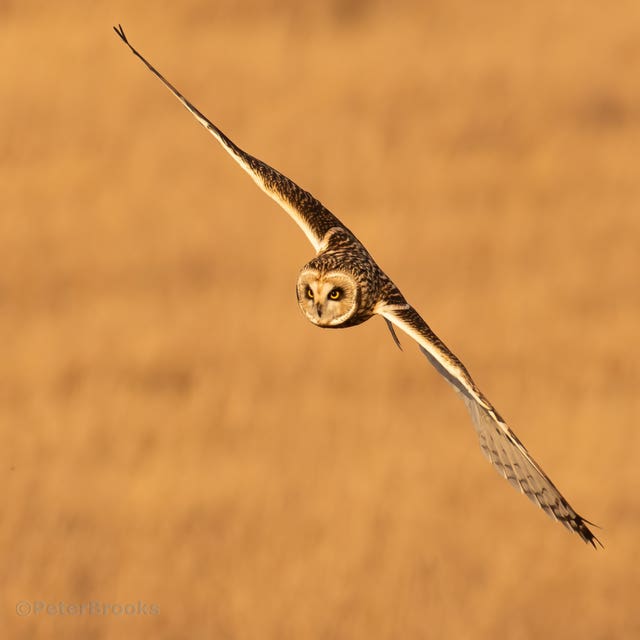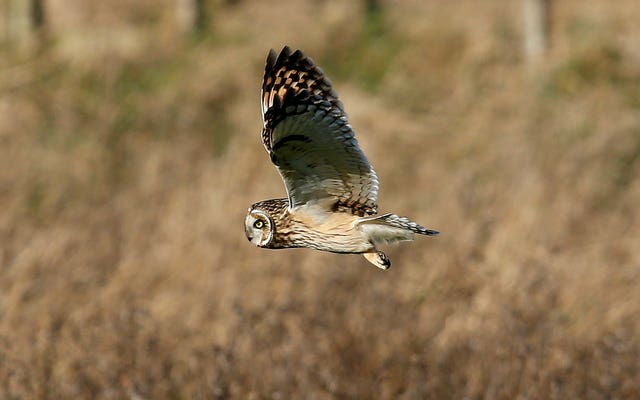
A resurgence of short-eared owls has been witnessed in the South Downs National Park thanks to a “renaturing” project which has created a “boom” in voles – the bird of prey’s favourite food.
Rangers at the Seven Sisters Country Park in East Sussex said they are delighted at the success of the scheme which has led to five of the owls being spotted in the area.
The project involves regrowing types of grasses on the Site of Special Scientific Interest which has allowed voles to thrive.
Ranger Laura Clapham said: “It’s been wonderful having these short-eared owls on the country park this winter – what a beautiful creature they are. To have five of them is quite extraordinary.

“They migrate thousands of miles to Britain to escape the freezing cold winters of Russia and Scandinavia, and it certainly seems like they’ve made themselves at home at Seven Sisters.
“We haven’t seen this many short-eared owls on this site for many years, so it’s really encouraging. This is nature recovery in action and it’s great to see.”
A spokesman for the South Down National Park said: “The bird of prey is an incredible spectacle of nature, but, up until recently, seeing one of these owls would have been an extremely rare sight at the country park.
“The resurgence of the owls has been put down to a boom in their favourite food – the vole,” he added.
After overwintering at Seven Sisters, the owls will fly towards Scandinavia during the spring.
The spokesman said rangers at Seven Sisters have worked over the past six months to manage the vegetation in the chalk grassland landscape.

He added: “As part of a new conservation management plan, certain fields on the 280-hectare site have not been grazed by cattle, leading to longer grasses that make the perfect habitat for voles to thrive.”
The spokesman added that rangers had also noticed greater numbers of other birds, including large flocks of dunlin and roosting oystercatchers, as well as sightings of curlew sandpipers, little stint, black-tailed godwit, redshank, ringed plover and whimbrel.
A rare invertebrate, the sea aster mining bee, had also been spotted.
The National Park Authority assumed ownership and management of Seven Sisters Country Park last July and is rotating grazing fields to manage the fragile chalk grassland habitat.
This has also allowed the introduction of Sussex breed cattle on certain fields following a long tradition of grazing on the site.
The national park spokesman said: “Almost like ‘ecosystem engineers’, the conservation grazing by the cows helps to manage the grassland, which can have up to 45 species of plants in a single square metre.”
Peter Cousin, commercial manager for Seven Sisters Country Park, said: “We’re committed to improving the habitat at Seven Sisters for a range of plants and animals. It’s still very early days and will take many years, but it’s fantastic to see the first green shoots of nature recovery.”


Comments: Our rules
We want our comments to be a lively and valuable part of our community - a place where readers can debate and engage with the most important local issues. The ability to comment on our stories is a privilege, not a right, however, and that privilege may be withdrawn if it is abused or misused.
Please report any comments that break our rules.
Read the rules here